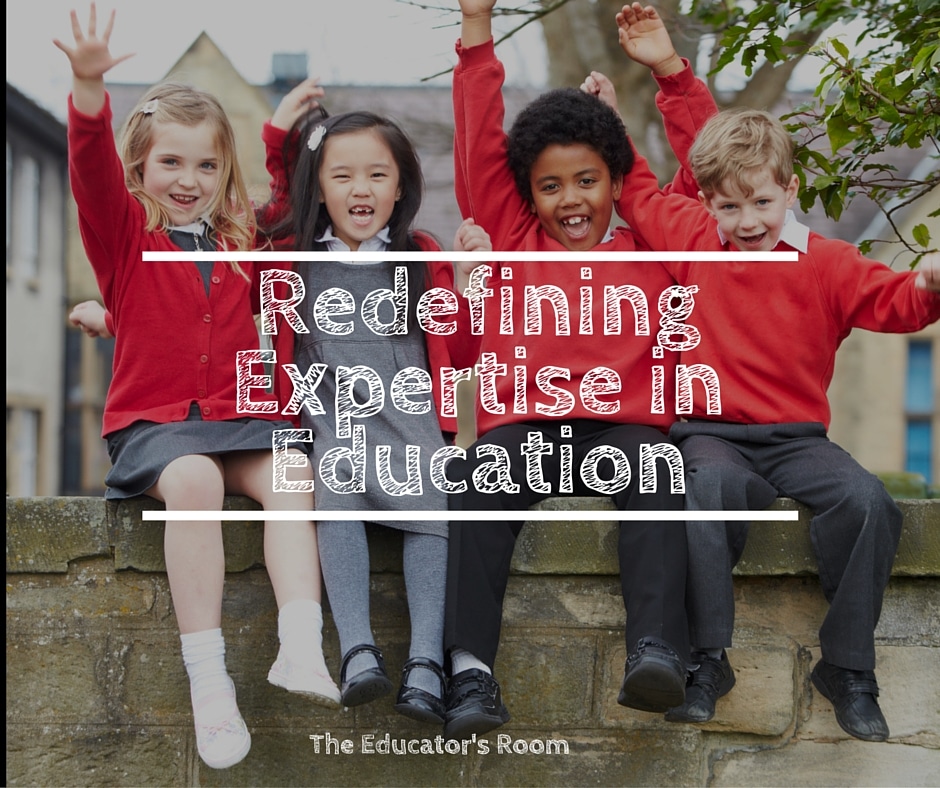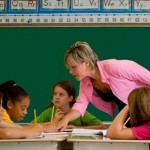One of the most humbling things about my seventh year teaching is realizing how much I have left to learn. I am lucky enough to work with several teachers with 10 to 20 years of experience under their belts. I am inspired by the breadth and depth of their knowledge. At the same time, I am realizing that I am no longer a novice. I’m proud of the solid base of experience I am developing.
It has been a national trend for some time to diminish the importance of experience in teaching. I entered the classroom in part as a result of this worldview. I was hired and trained through an alternate certification program, New York City Teaching Fellows, which recruits “career changers” and “high achieving” college grads and provides them with a total of seven weeks of training. Programs like Teaching Fellows and Teach for America have been criticized by some for undermining the value of experience in the classroom.
We’ve also witnessed this attitude manifest in the praise heaped on charter school networks — New York City’s Success Academy is the most prominent example — who achieve high results on standardized tests at the expense of teacher retention.
Doesn’t it seem strange that experience would be devalued in teaching? We certainly don’t apply the same approach to other fields like medicine or law.
But it may be possible a shift is underway.
In New York City for example, Chancellor Carmen Fariña has notably changed the requirements for principal positions to include at least seven years of pedagogical experience. This was a powerful signal that the district would be valuing the knowledge and skills that come with experience.
But real meaningful change requires teachers to reclaim and redefine expertise for ourselves. We must remind ourselves that we are the experts in our classrooms. We spend more instructional time with our students than anyone else in our school. We observe our own teaching first-hand and usually know better than anyone why and when something doesn’t go well. This is expertise we should be proud of! This is expertise we should speak from whether discussing a student’s progress with a family or professional learning goals with a principal.
This isn’t to say we know everything we need to know. In fact, being an expert means in part knowing what you don’t know. Public school teaching in America has been described for some time as an “egg crate” model, meaning there is little interaction or collaboration between classrooms. Another way to reclaim expertise is by breaking through the egg crate, and finding other experts to learn from.
Working closely with other teachers at my school has proven tremendously valuable. I have gained new approaches on everything from project-based learning to word study, reading instruction to checking homework.
At the same time, I’ve had to look beyond my school for opportunities for professional learning on the topics that interest me most. In New York City there’s a range of professional learning opportunities through the district, my union, and many educational non-profits. I’ve also begun exploring conferences. Whether you’re interested in ed-tech, social justice or both, there’s probably something out there for you (Did you know The Educator’s Room is hosting a one day workshop in New York City?!).
Other experts aren’t just other teachers though. In a recent New York Times essay comparing the slow and steady improvement of Union City schools in New Jersey to the rocky and controversy-marked turnaround in Newark, David Kirp wrote: “What went wrong [fusion_builder_container hundred_percent=”yes” overflow=”visible”][fusion_builder_row][fusion_builder_column type=”1_1″ background_position=”left top” background_color=”” border_size=”” border_color=”” border_style=”solid” spacing=”yes” background_image=”” background_repeat=”no-repeat” padding=”” margin_top=”0px” margin_bottom=”0px” class=”” id=”” animation_type=”” animation_speed=”0.3″ animation_direction=”left” hide_on_mobile=”no” center_content=”no” min_height=”none”][in Newark] had as much to do with their top-down approach as with the proposals themselves.”
We as teachers know the pain and frustration of top-down reform. Thus we should be especially mindful of a top-down approach to our own classrooms. This means engaging our students, regardless of age, as consultants on their own learning. Our students have a lot to teach us about their interests, as well as the types of teaching that can be most effective.
Family engagement is another way to grow our network of expertise. Our students’ families are their first teachers. They also have a range of skills and knowledge apart from our own. Recently I had a mother of a student visit to demonstrate how to make tortillas as part of our non-fiction study of Mexico. There’s no way I could have done this on my own!
There are many smart people working as instructional coaches and education consultants. But nobody knows our schools or our students as well as we do. We should always be humble and seek to learn more from our colleagues, students and their families. But we should also take pride in what we do know and remember that this is a form of expertise that cannot be matched by anyone.
[/fusion_builder_column][/fusion_builder_row][/fusion_builder_container]




